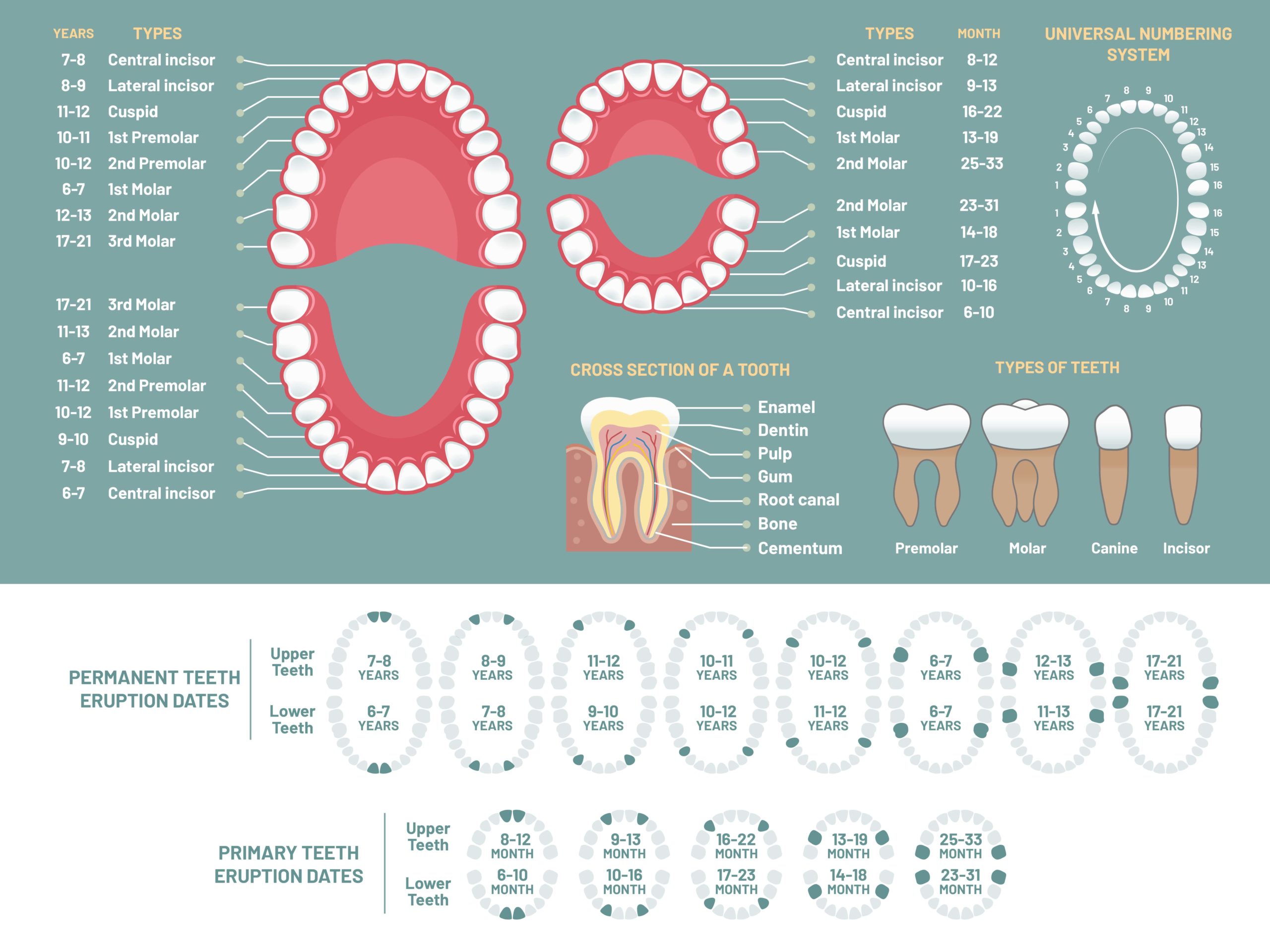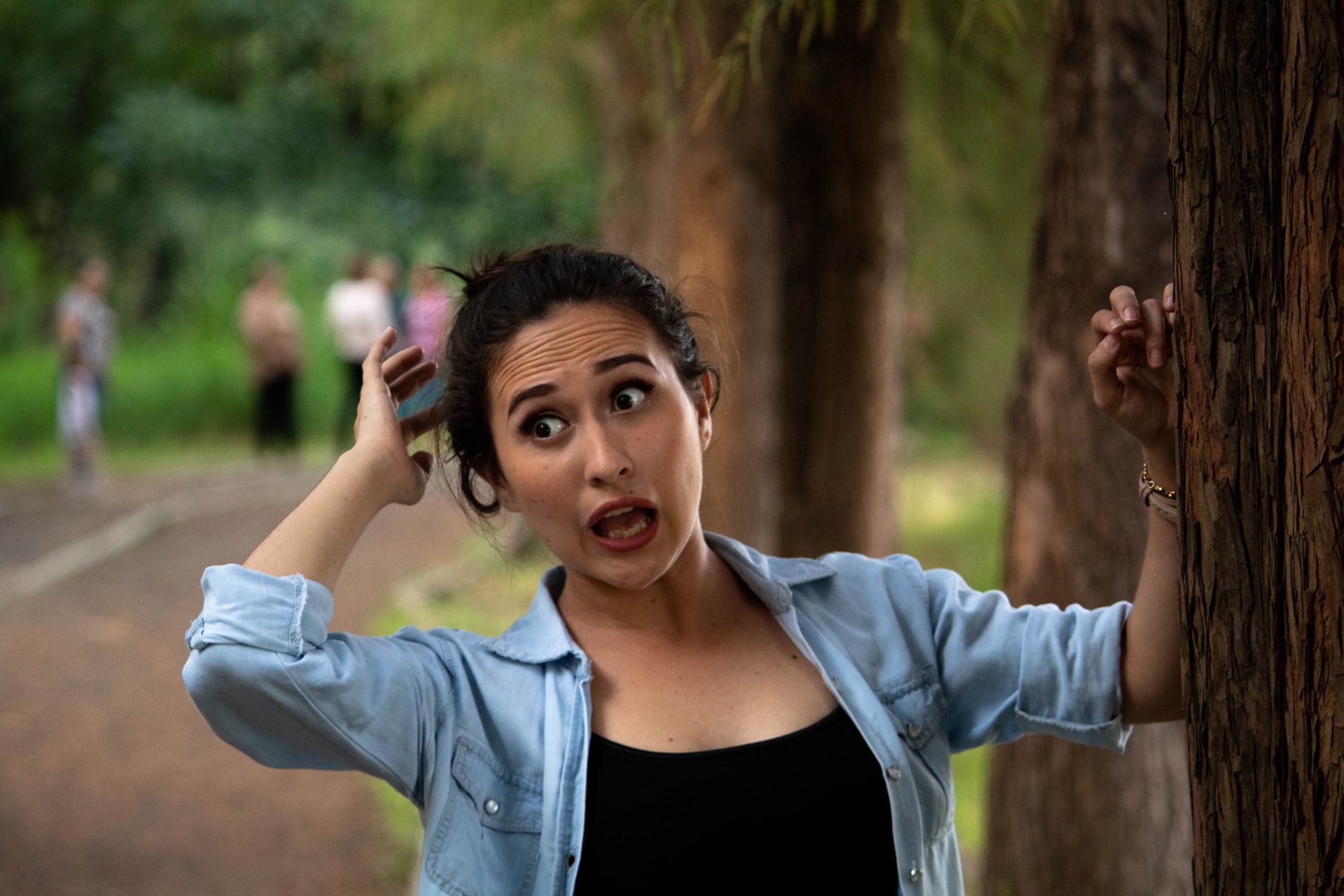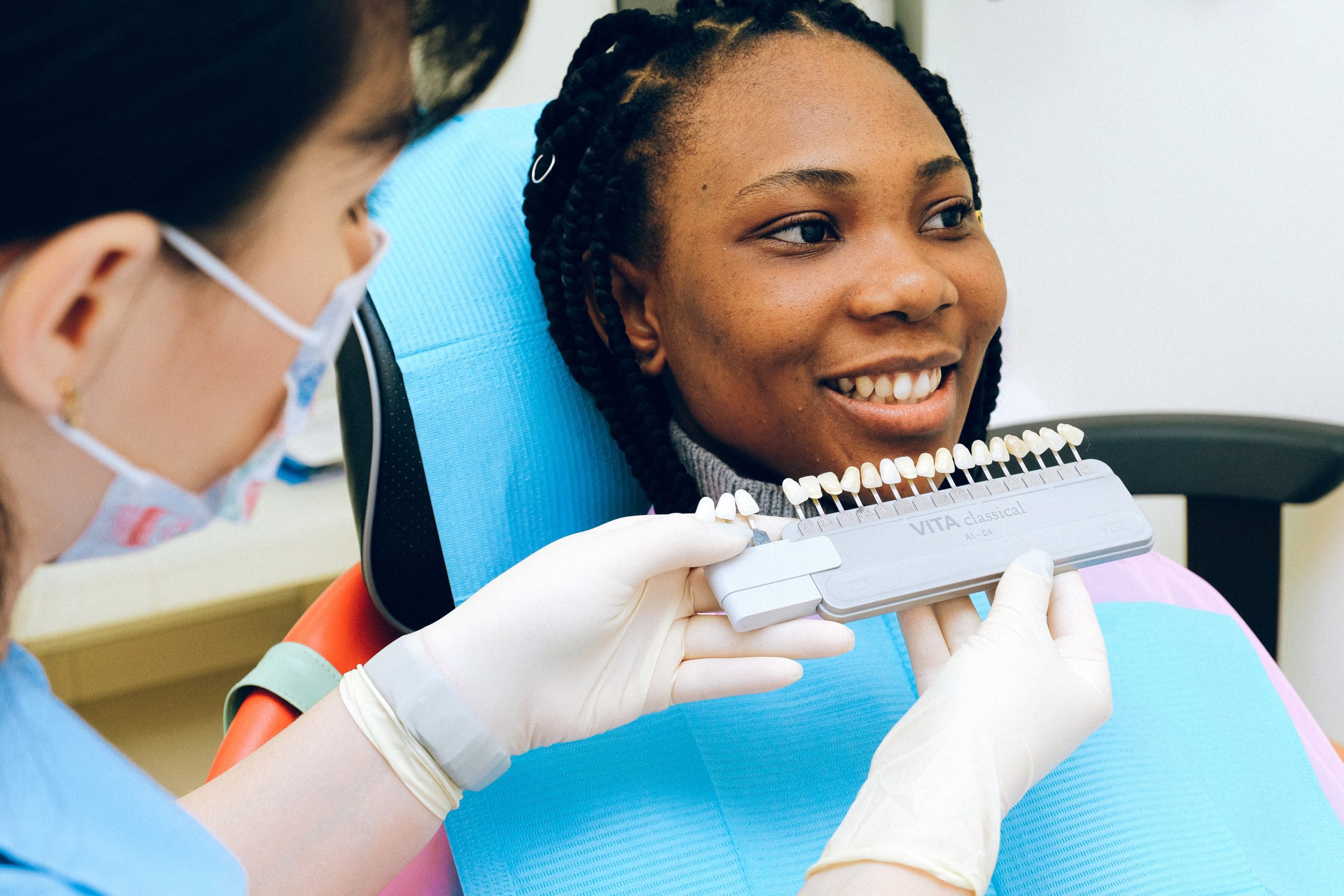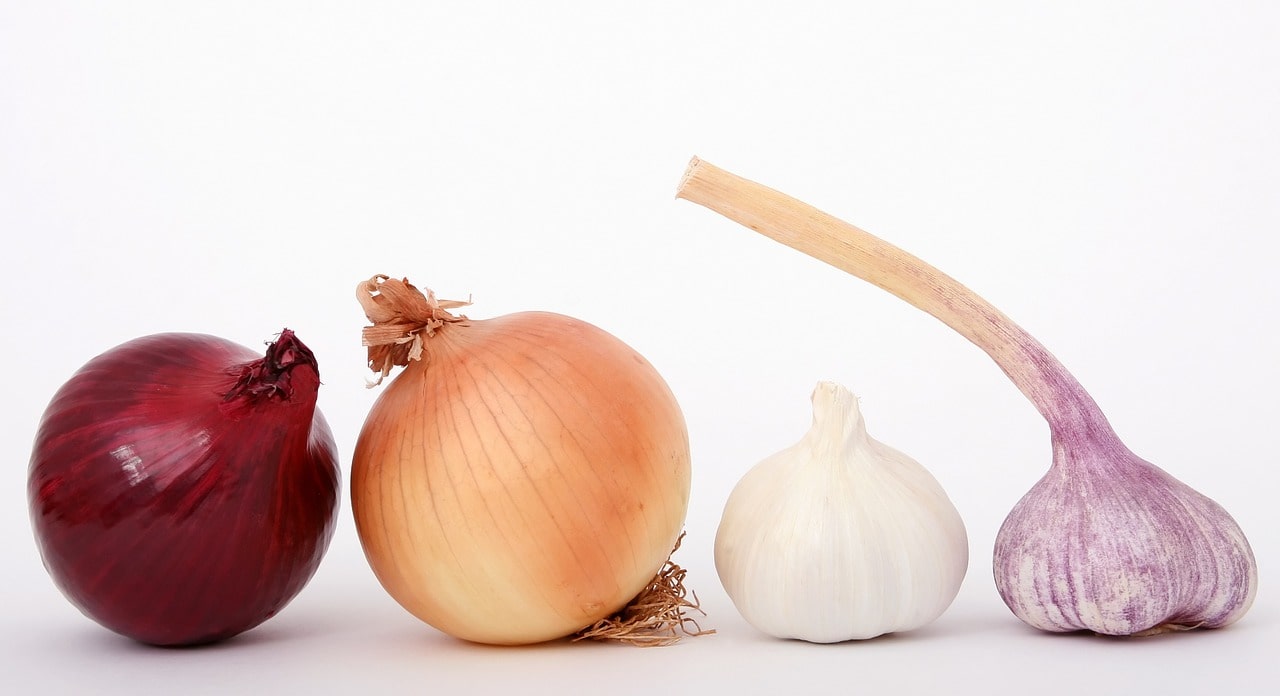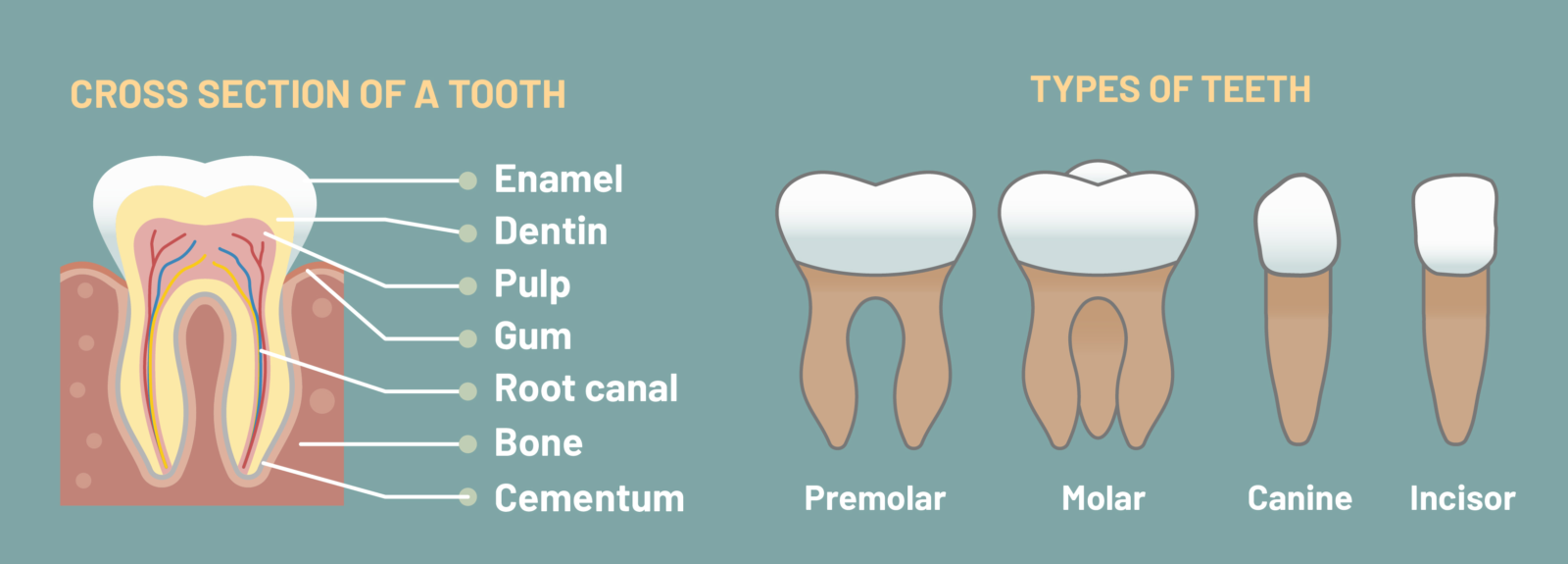If a shark loses a tooth, no biggie. Sharks can have over 50,000 teeth in their lifetime.
Elephants can replace four of their main teeth up to 6 times in a lifetime.
So why do humans only have 2 sets of teeth?
We develop a set of ‘baby’ teeth only for our adult teeth to come in and push out the baby set. Why don’t our baby teeth grow the same way our hair does? Or our fingernails?
We discover the purpose of baby teeth and how they help shape our bodies and make way for our adult teeth.
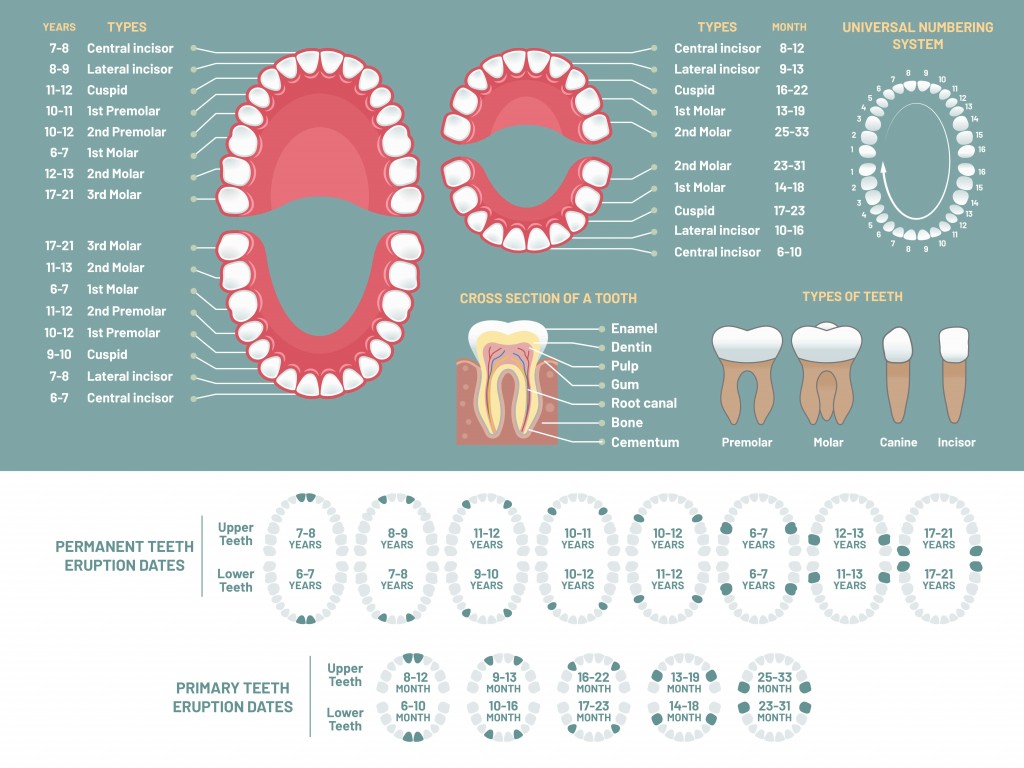
Baby Teeth
Your baby teeth can start to develop from as early as a tiny embryo inside the womb. If you were born with some teeth, they are often referred to as ‘natal teeth’. Our baby teeth serve an important purpose in shaping our growing jaw, help us chew our food properly (you may recall being told to chew properly), and help us speak our first words.
For most, we generally start with 20 primary baby teeth, 10 on the top, 10 on the bottom. As we grow older and our jaws begin to develop, these teeth are eventually replaced with 32 permanent adult teeth, 16 on each upper and lower jaw.
Adult Teeth
We start to develop adult molar teeth from as early as the age of 6. These extra teeth do not replace any existing baby teeth. The molars help determine the shape of our lower jaw and face, and can affect the positioning of other permanent teeth. By the age of 13, most children will have the majority of their permanent teeth (28 out of 32) with only the 4 wisdom teeth left to erupt.
Read more:
6 Ways to Teach Kids Good Oral Hygiene
How to Take Care of Your Child’s Teeth
Wisdom Teeth
The final 4 permanent teeth to erupt are the wisdom teeth, which are located in the four back corners of our mouth. The wisdom teeth usually erupt between the ages of 18 to 25. Most will start to experience pain and discomfort as they start to push through the gumline.
Unfortunately, unlike most adult teeth, wisdom teeth can erupt partially and sideways making it harder to clean, but also cause other oral health issues. This is known as impacted wisdom teeth and your dentist will recommend having them extracted before they cause further complications such as infections.
What happens when you lose an adult tooth?
Sadly, if you lose an adult tooth another one won’t grow and replace it. However, this doesn’t mean you have to live the rest of your life with missing teeth. Thanks to modern dentistry, there are a number of options to choose from when it comes to replacing your missing teeth.
Dental treatment options include:
- Dental implants: permanent solution to replacing missing teeth and restoring the natural good looks of a smile. If well cared for, dental implants can last a lifetime.
- Dental crowns: made from a wide range of materials, dental crowns are mainly used to cover tooth imperfections, restoring its natural appearance and function.
- Composite bonding: the most cost-effective dental treatment used to treat minor chipped teeth.
- Dental bridges: made from porcelain, alloy, and gold, dental bridges use adjacent natural teeth for support and are used when there are multiple missing teeth.
Choosing the right tooth replacement option
With so many effective dental treatments available, how do you know which one is right for you? It’s important to consult your dentist about any concerns and questions you have with your teeth and the type of treatments available. When considering each option, discuss what the final results will look like and any sort of ongoing maintenance required.
If you have a missing tooth or missing several teeth, book an appointment with Tandara Dental Centre Gosnells to discuss what are your options. We’ll explain what is involved with each dental treatment so you can make a decision that you are happy with. We accept all private health funds including Medibank Private, HCF, Bupa, and more.
